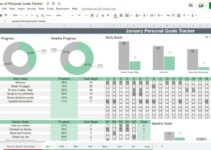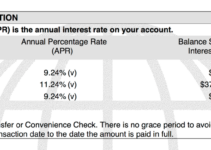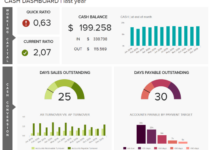Welcome to Personal Finance for Seniors 2024, where we navigate the unique financial landscape that awaits you. As you embark on this new chapter, we’ll provide insights, strategies, and practical tips to help you make informed decisions and secure your financial well-being.
From retirement planning and investment strategies to managing healthcare costs and estate planning, we’ll cover everything you need to know to achieve financial success and peace of mind in your golden years.
Understanding Personal Finance Needs for Seniors
As seniors navigate their golden years, they encounter unique financial challenges and opportunities that require tailored planning. Understanding these evolving needs is crucial for ensuring financial security and well-being.
One significant challenge is the changing life circumstances that seniors face. Retirement, reduced income, and increased healthcare expenses can significantly impact financial stability. Seniors may need to adjust their spending habits, explore alternative income sources, and consider downsizing to manage their expenses.
Healthcare Expenses
Healthcare costs are a major concern for seniors, as they often face chronic health conditions that require ongoing medical attention. Medicare, the primary health insurance program for seniors, covers a substantial portion of these expenses, but it may not cover all costs.
Seniors may need to supplement their coverage with private health insurance or consider long-term care insurance to protect against catastrophic expenses.
Retirement Income
Retirement income is another key consideration for seniors. Social Security benefits, pensions, and personal savings are common sources of income, but they may not always be sufficient to maintain a comfortable lifestyle. Seniors may need to explore part-time work, annuities, or reverse mortgages to supplement their retirement income.
Retirement Planning and Investment Strategies
Retirement planning is crucial for seniors to ensure financial stability and a comfortable lifestyle in their golden years. With various investment options available, it’s essential to make informed decisions to maximize returns and manage risk.
Investment Options
Seniors have access to a range of investment options, each with its own characteristics and risk profile:
- Annuities:Contracts that provide a guaranteed stream of income for life, offering stability and peace of mind.
- Mutual Funds:Diversified baskets of stocks, bonds, or other assets, providing exposure to a broader market.
- Real Estate:Tangible assets that can generate rental income or potential capital appreciation.
Risk Management and Maximizing Returns
Managing risk and maximizing returns is essential in a volatile market. Here are some tips:
- Diversify Portfolio:Spread investments across different asset classes and sectors to reduce risk.
- Invest for the Long Term:Market fluctuations are temporary, so stay invested and ride out market downturns.
- Rebalance Regularly:Adjust asset allocation to maintain desired risk levels and optimize returns.
Estate Planning and Wealth Preservation

Estate planning is essential for seniors to ensure their wishes are respected after their passing and to protect their loved ones. It involves organizing and distributing assets, minimizing taxes, and providing for the future care of dependents.
Estate planning tools include wills, trusts, and powers of attorney. Wills allow individuals to specify how their assets will be distributed upon their death. Trusts provide greater control over the management and distribution of assets, including the ability to avoid probate and minimize taxes.
Powers of attorney grant authority to trusted individuals to make financial and healthcare decisions on behalf of the senior.
Minimizing Estate Taxes, Personal Finance For Seniors 2024
- Utilize gifting strategies to transfer assets to heirs gradually while alive.
- Establish charitable trusts to reduce taxable income and provide tax deductions.
- Consider life insurance policies to provide liquidity for estate taxes.
Preserving Wealth for Heirs
- Invest in a diversified portfolio to minimize risk and maximize returns.
- Establish trusts to protect assets from creditors and lawsuits.
- Consider using prenuptial agreements to safeguard assets acquired before marriage.
Managing Healthcare Costs and Insurance
The rising cost of healthcare can be a significant financial burden for seniors. Fortunately, there are strategies to manage these costs and ensure access to quality care.
Medicare
Medicare is a government health insurance program for seniors and individuals with disabilities. It offers two main parts:
- Part Acovers hospital care, skilled nursing facility care, and hospice care.
- Part Bcovers medical services, such as doctor visits, outpatient care, and durable medical equipment.
Supplemental Insurance
Medicare supplemental insurance, also known as Medigap, can help cover out-of-pocket costs not covered by Medicare. These policies vary in coverage and cost, so it’s important to compare options to find the one that best meets your needs.
Negotiating Medical Bills
Don’t be afraid to negotiate medical bills. Call the billing department and ask for a discount or payment plan. You may also be able to reduce costs by comparing prices from different providers before scheduling procedures.
Financial Assistance Programs
There are several financial assistance programs available to help seniors with healthcare costs. These programs include:
- Medicaidprovides health coverage for low-income individuals and families.
- Supplemental Security Income (SSI)provides monthly payments to low-income seniors and disabled individuals.
- Medicare Savings Programshelp pay for Medicare premiums, deductibles, and copayments for low-income seniors.
Housing Options and Considerations
As you age, your housing needs may change. You may want to downsize to a smaller home, age-in-place by making modifications to your current home, or move to an assisted living facility. Each option has its own financial implications, so it’s important to make an informed decision.
Downsizing
Downsizing can be a good option if you want to reduce your expenses and maintenance responsibilities. However, it’s important to factor in the costs of moving, selling your current home, and purchasing a new one. You’ll also need to consider the emotional impact of leaving your home.
Aging-in-Place
Aging-in-place can be a good option if you want to stay in your home for as long as possible. However, it’s important to make sure your home is safe and accessible. You may need to make modifications such as installing grab bars, ramps, and wider doorways.
You may also need to hire a home care aide to help you with activities of daily living.
Assisted Living
Assisted living can be a good option if you need help with activities of daily living, such as bathing, dressing, and eating. Assisted living facilities provide a variety of services, such as meals, laundry, and transportation. However, assisted living can be expensive, so it’s important to compare costs before making a decision.
Reverse Mortgages and Home Equity Loans
Reverse mortgages and home equity loans can be used to finance housing expenses. However, it’s important to understand the risks involved before taking out either of these loans.*
- *Reverse mortgages allow you to borrow against the equity in your home without having to make monthly payments. However, you will have to repay the loan when you sell your home or move out.
- *Home equity loans are secured loans that are backed by the equity in your home. Home equity loans have lower interest rates than reverse mortgages, but you will have to make monthly payments.
Budgeting and Debt Management
Planning your finances as a senior is vital for maintaining financial stability and peace of mind during your retirement years. Creating a realistic budget and managing debt effectively can help you maximize your income and minimize expenses, ensuring you have the resources you need to live comfortably.
Here are some tips for creating a budget that works for you:
- Track your income and expenses: Keep a detailed record of all your income sources and expenses for a month or two to get a clear picture of your cash flow.
- Categorize your expenses: Group your expenses into categories such as housing, food, transportation, and healthcare. This will help you identify areas where you can cut back.
- Set financial goals: Determine what you want to achieve with your budget, such as saving for a down payment on a new home or paying off debt.
- Prioritize your expenses: Decide which expenses are essential and which ones you can reduce or eliminate.
- Be realistic: Don’t set yourself up for failure by creating a budget that is too restrictive. Start with a plan that you can stick to and adjust it as needed.
Managing Debt
If you have debt in retirement, it’s important to develop a strategy for managing it. Here are some tips:
- Consolidate your debt: Combine multiple debts into a single loan with a lower interest rate to simplify your payments and potentially save money.
- Negotiate with creditors: If you’re struggling to make payments, contact your creditors and explain your situation. They may be willing to work with you to lower your interest rate or monthly payment.
- Seek credit counseling: A non-profit credit counseling agency can provide you with free or low-cost advice on managing your debt and creating a budget.
- Consider debt relief programs: If you’re unable to repay your debts, you may qualify for debt relief programs such as bankruptcy or debt settlement.
Financial Scams and Fraud Prevention: Personal Finance For Seniors 2024
As seniors navigate their financial lives, they may encounter various scams and fraudulent activities that target their vulnerability. Understanding these schemes and taking proactive steps to protect oneself is crucial for financial well-being.
Financial scams often prey on seniors’ trust, isolation, or cognitive decline. Common tactics include phishing emails, phone calls, or in-person interactions that attempt to extract personal information, financial data, or money.
Identifying Common Scams
- Lottery or sweepstakes scams:Fraudsters contact seniors claiming they have won a prize but require an upfront payment to claim it.
- Grandparent scams:Imposters call seniors pretending to be their grandchildren in distress, requesting money for an emergency.
- Investment scams:Fraudulent investment schemes promise unrealistic returns or target seniors with limited financial knowledge.
- Medicare or Social Security scams:Scammers impersonate government officials to obtain personal information or financial details.
- Romance scams:Fraudsters build relationships with seniors online or through social media, gaining their trust and eventually requesting money.
Tips for Protecting Yourself
- Never share personal or financial information over the phone, email, or text message.
- Be wary of unsolicited offers or requests for money.
- Research any investment opportunities or financial products before committing.
- Use strong passwords and update them regularly.
- Install anti-malware and anti-phishing software on your devices.
Role of Family and Caregivers
Family members and caregivers play a vital role in protecting seniors from financial exploitation. They can:
- Monitor financial statements and transactions.
- Discuss financial matters openly and encourage seniors to seek advice from trusted sources.
- Report any suspicious activities or concerns to the authorities.
Resources for Reporting Scams
- Federal Trade Commission: https://www.ftc.gov/
- National Council on Aging: https://www.ncoa.org/
- AARP Fraud Watch Network: https://www.aarp.org/money/scams-fraud/
Technology and Financial Management
In retirement, technology can be a valuable tool for managing finances effectively. It offers convenience, automation, and access to a wide range of financial services.
Online Banking
Online banking allows you to access your accounts, pay bills, and transfer funds from anywhere with an internet connection. It’s a convenient and time-saving option that eliminates the need to visit a physical bank branch.
Budgeting Apps
Budgeting apps help you track your income and expenses, set financial goals, and create budgets. They provide insights into your spending habits and can help you identify areas where you can save money.
Investment Platforms
Online investment platforms offer a wide range of investment options, including stocks, bonds, and mutual funds. They provide access to real-time market data and allow you to manage your investments from anywhere.
Staying Safe and Secure
While technology offers many benefits, it’s important to stay safe and secure when conducting financial transactions online. Here are some tips:
- Use strong passwords and change them regularly.
- Be cautious of phishing emails and websites that request your personal or financial information.
- Use two-factor authentication when available.
- Keep your software and devices up to date with the latest security patches.
- Monitor your accounts regularly for any unauthorized activity.
Concluding Remarks
Remember, personal finance is an ongoing journey, and with careful planning and informed decision-making, you can navigate the challenges and opportunities of aging with confidence. Embrace the wisdom of experience and the power of financial knowledge to create a fulfilling and financially secure future for yourself and your loved ones.
FAQ
What are the biggest financial challenges facing seniors?
Rising healthcare expenses, decreasing retirement income, and navigating the complexities of estate planning are some of the key financial challenges seniors face.
How can I plan for a comfortable retirement?
Start saving early, consider various investment options, and seek professional advice to create a retirement plan tailored to your individual needs.
What are the different types of estate planning tools available?
Wills, trusts, and powers of attorney are essential estate planning tools that help you distribute your assets, protect your loved ones, and minimize estate taxes.
How can I manage rising healthcare costs as a senior?
Explore Medicare options, consider supplemental insurance, and take advantage of financial assistance programs to reduce the burden of healthcare expenses.
What are the different housing options available for seniors?
Downsizing, aging-in-place, and assisted living are common housing options for seniors, each with its own financial implications and considerations.








